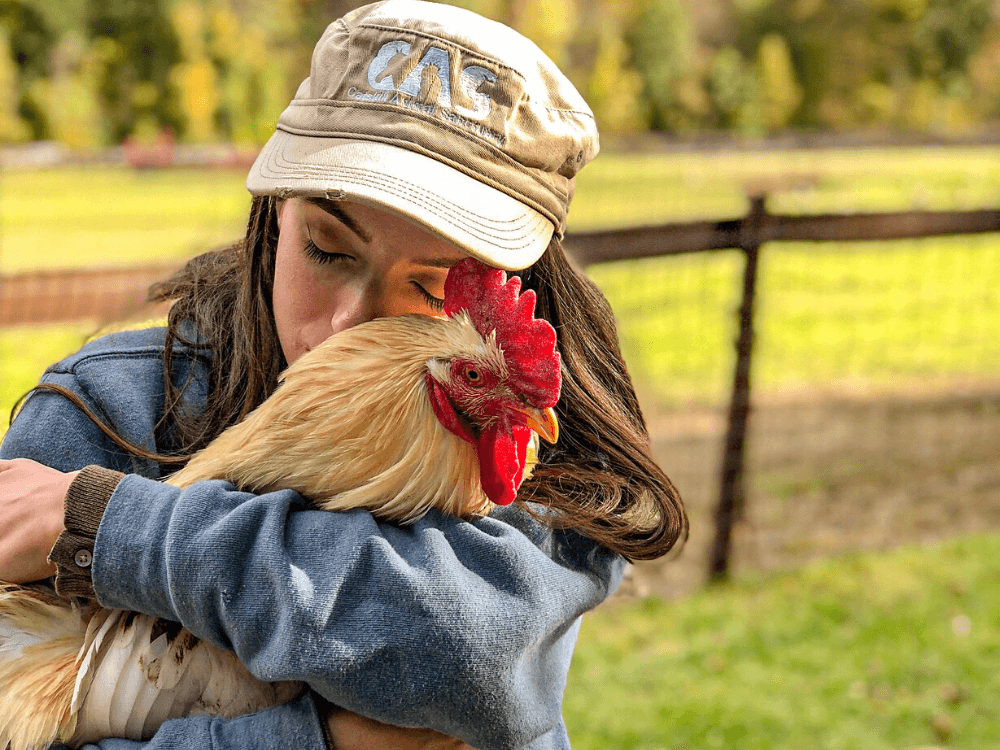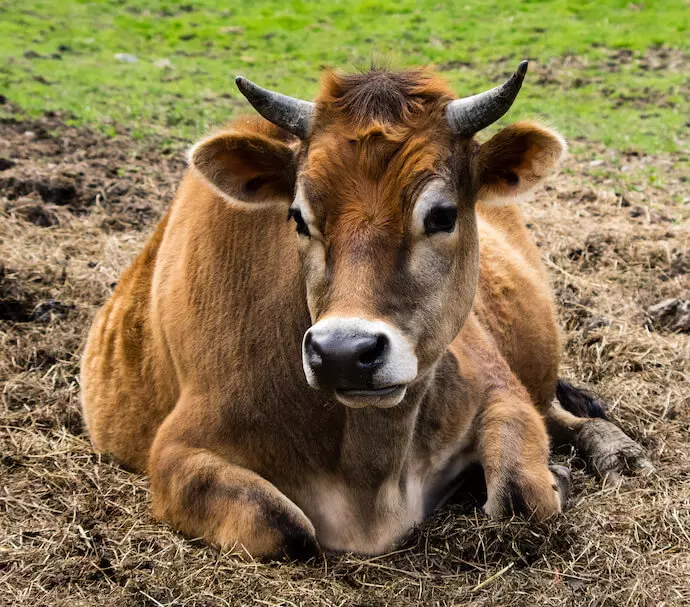
Please Read This Before Starting Your Backyard Coop
This spring has introduced new challenges to our sadly typical rescue request influx, as folks are not only panic-buying cleaning supplies and toilet paper, but now, it seems, baby chicks, too. While we can certainly understand the temptation of having cute baby chicks around, before you start setting up your coop, please read on: Last month, we received an extremely upsetting voicemail from a post office worker in the Hudson Valley begging us to “do something” about the overwhelming number of live-animal boxes they’re having to handle, and the left-behind stench of baby birds dying in transit.“We just had a box of chicks show up, and [the whole box] is dead… This is just—happens repeatedly… Please, please do something for these poor animals.”
As a teaching sanctuary, we help good people understand the alarmingly few protections afforded chickens, geese, turkeys, and ducks. The few laws that do exist to protect the welfare of animals raised for food most often don’t apply to our avian friends, and “live mailing” is just one of those laws. It is perfectly legal to ship live chicks through the mail, and in fact, some hatcheries and farms even encourage consumers to purchase extra chicks due to the likelihood that many won’t survive the journey. Here’s what we know about chickens:“If you can do something about this—these animals are being shipped in the mail. They’re thrown in these trucks. There’s no heat in the winter. There’s no air-conditioning in the summer, and sometimes they come and got boxes thrown on top of them. Please do something.”
- No matter how hard we try, humans can’t replace the diligent care a mother hen gives her baby. Incubators don’t have maternal instincts, and as a result, many “mailed” chicks wind up sick or injured in their new home, requiring expensive medical care that is often not granted to “food animals.”
- Chicks are often incorrectly sexed and flock owners typically kill or dump their “surprise” roosters. Many sanctuaries (like ours) are full and don’t have the space or resources to take in more roosters, so where are they supposed to go? Many are sold or given away for free on Craigslist as “stewers.”
- Whereas their wild ancestors would only lay 10-12 eggs per year, hens today lay anywhere from 300 to 350 eggs annually, which causes their bodies tremendous stress and premature death. We’ve rescued laying hens who have had grapefruit-sized masses of impacted egg material stuck in their bodies. We’ve rescued hens who developed ovarian cancer. We’ve rescued hens who will die if they lay just one more egg. This is the reason why we say there is no such thing as a humane egg—even if that hen has the best life, every egg she lays shortens her life and causes her to suffer.
- Chickens are remarkably intelligent, social, and empathetic beings. They have language. They can be deceitful and manipulative, and they can learn how to play the piano and master puzzles (sometimes faster than children!). They are chivalrous and display love and devotion to one another—they teach us about friendship and love every single day.
- For every chick we see in Tractor Supply, in feed stores, and, yes, even in our mailboxes, a baby boy chick has been brutally killed. Demand for roosters is notably low, but just as with humans, there’s a 50% chance that every chick will be male. Within hours of emerging from their shells, chicks are “sexed” and males are either discarded in garbage bags, left to suffocate and die, or thrown into a macerator where they are ground up alive. And when we consider the 10-30% error rate in determining sex, it adds up. Worldwide, about 7 billion chicks are culled each year in the egg industry, which is where most of these birds are mailed from. To put that number in perspective: 7 billion seconds is 220 years. To travel 7 billion miles, you’d have to circle the globe 300,000 times. 7 billion is an enormous number.
animal rescue, animal sanctuary, backyard coop, Catskill Animal Sanctuary, chick, chicks, coop, egg, eggs, farm animal rescue, hen, hens, how to go vegan, mail, mail order chicks, post office, rescue, rescue animal, sanctuary animal rescue, Sanctuary Journal, usps, vegan, vegan food





